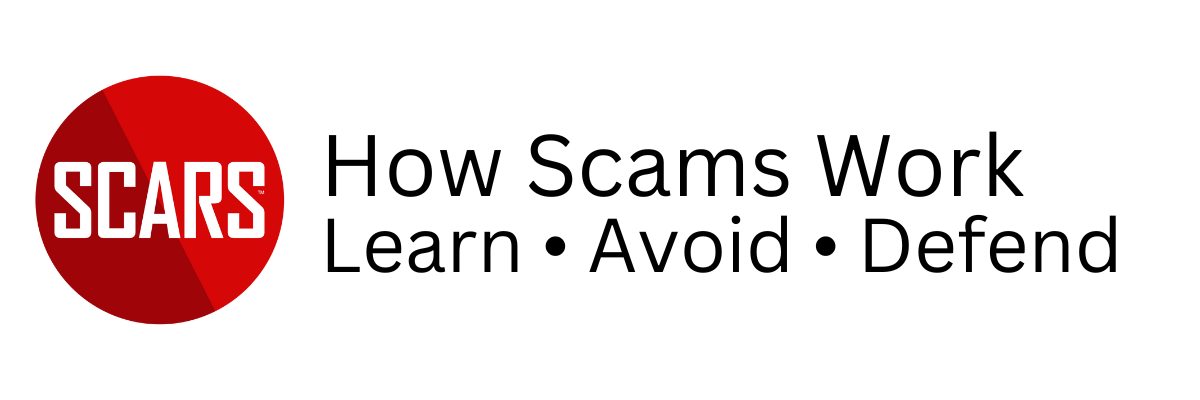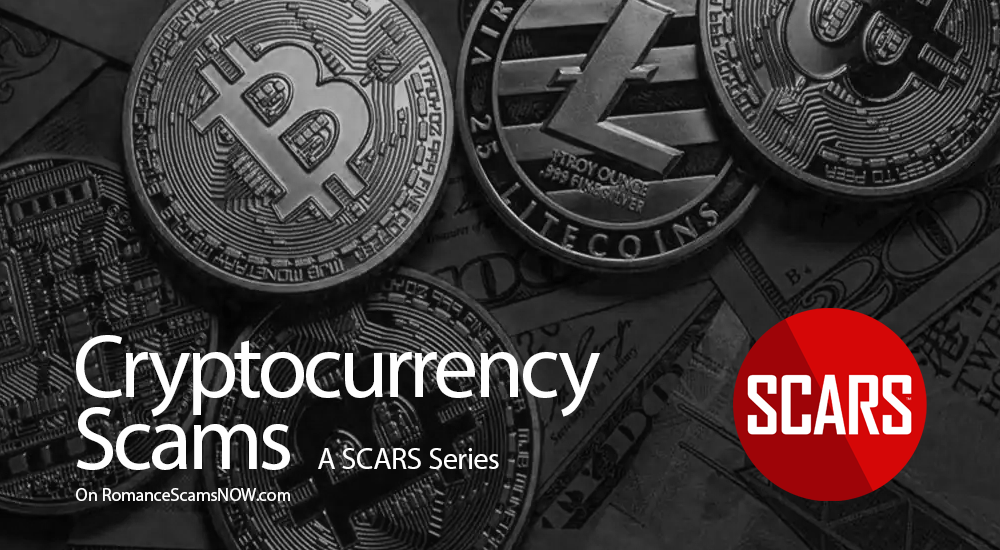Article Abstract
Investigating blockchain and tracing cryptocurrency to find stolen funds demands technical expertise, analytical tools, and collaboration with law enforcement. It begins with an assessment of the theft’s details, followed by blockchain analysis to track fund movement. Investigators employ various tools such as Breadcrumbs, Blockchair, and Oxt.me to aid in their investigations. Understanding these processes sheds light on efforts to combat cryptocurrency crime and recover stolen assets.
Techniques like address clustering and exchange monitoring help trace the flow of stolen funds. Investigators may infiltrate the dark web to identify criminals laundering the cryptocurrency. Legal action may involve seizing assets or freezing accounts.
Victim assistance is crucial throughout, offering support and guidance. Challenges include privacy concerns and the use of anonymity tools by criminals.

Cryptocurrency and Blockchain Tracing and Investigation Process and Tools to Help Investigators Track Down Stolen Crypto!
Understanding Blockchain Analysis & Tracing
Investigating blockchain and tracing cryptocurrency to find stolen funds involves a combination of technical expertise, analytical tools, and collaboration with law enforcement agencies.
Here’s an overview of the process:
- Initial Assessment: The investigation begins with gathering information about the theft, including the type of cryptocurrency stolen, the amount, the time of the theft, and any other relevant details. This information helps investigators understand the scope of the crime and develop a strategy for tracing the stolen funds.
- Blockchain Analysis: Cryptocurrencies like Bitcoin and Ethereum operate on decentralized ledgers known as blockchains. Blockchain analysis involves examining the transaction history recorded on the blockchain to trace the movement of stolen funds. Investigators use specialized software tools to analyze blockchain data, identify suspicious transactions, and track the flow of funds across multiple addresses.
- Address Clustering: In many cases, thieves attempt to obfuscate the trail of stolen funds by splitting them into smaller amounts and transferring them through multiple addresses. Address clustering techniques help investigators group related addresses belonging to the same entity, allowing them to trace the flow of funds more accurately.
- Exchange Monitoring: Stolen cryptocurrency often ends up on cryptocurrency exchanges, where it can be traded for other digital assets or fiat currency. Investigators collaborate with cryptocurrency exchanges to monitor transactions and identify accounts associated with the stolen funds. Exchanges may freeze accounts or implement other measures to prevent the laundering of stolen funds.
- Dark Web Investigation: Criminals sometimes use the dark web to launder stolen cryptocurrency through anonymous marketplaces and mixing services. Investigators may infiltrate these platforms to gather intelligence and track down individuals involved in laundering stolen funds. Collaboration with international law enforcement agencies may be necessary to shut down illegal operations and apprehend suspects.
- Legal Action: Once stolen funds are traced to specific individuals or entities, law enforcement agencies may take legal action to recover the assets and hold the perpetrators accountable. This may involve obtaining court orders to seize assets, freeze accounts, or arrest suspects involved in the theft.
- Victim Assistance: Throughout the investigation process, law enforcement agencies work closely with victims of cryptocurrency theft to provide updates on the progress of the investigation and facilitate the recovery of stolen funds. Victims may also be advised on steps they can take to enhance the security of their cryptocurrency holdings and prevent future incidents of theft.
Overall, investigating blockchain and tracing cryptocurrency to find stolen funds requires a combination of technical expertise, collaboration with industry stakeholders, and coordinated efforts by law enforcement agencies. While the process can be complex and challenging, successful outcomes are possible with the right resources and dedication to combating cryptocurrency crime.
Investigating Stolen Crypto Through Blockchain Analysis:
Tracing stolen cryptocurrency is a complex process that leverages several techniques within the realm of blockchain analysis. Here’s a breakdown of the key steps:
1. Data Collection:
- Transaction data: This forms the basis of the investigation, gathering details like transaction hashes, addresses, timestamps, and amounts involved in the suspected theft.
- Blockchain explorers: Public platforms like Etherscan, Blockchain.com, or Bitcoin Block Explorer are used to extract raw transaction data (see below.)
- Blockchain analytics tools: Specialized tools like Chainalysis, TRM Labs, or Crystal offer advanced functionalities for data analysis and visualization.
2. Transaction Tracing:
- Address clustering: Transactions are grouped based on shared characteristics, identifying connections between seemingly disparate addresses used by the thief.
- Heuristics and rules: Analysts apply specific rules and patterns based on known money laundering techniques to identify suspicious activity.
- Network analysis: Visualizing the connections between involved addresses creates a map of the flow of stolen funds.
3. Identification and Tracking:
- Exchange identification: If stolen funds reach cryptocurrency exchanges, investigators seek to identify the specific platforms involved.
- KYC (Know Your Customer) data: If available, KYC data from exchanges can potentially reveal the identity behind an address.
- Open-source intelligence (OSINT): Combining on-chain data with online investigations can link addresses to individuals or entities.
4. Collaboration and Reporting:
- Law enforcement cooperation: Involving law enforcement agencies is crucial for accessing additional data and taking legal action.
- Sharing information: Reporting suspicious activity to relevant authorities and organizations aids in broader tracking and prevention efforts.
Challenges and Limitations:
- Privacy concerns: Balancing blockchain’s inherent transparency with individual privacy remains a key challenge.
- Mixing services and anonymity tools: Criminals often use techniques to obfuscate transaction flows and hinder tracking.
- Regulation and international cooperation: Effective investigations often require international collaboration and clear regulatory frameworks.
Remember: This is a simplified overview. Investigations involve complex techniques, legal considerations, and constant adaptation to evolving criminal tactics.
Additional Resources:
- Chainalysis: https://www.chainalysis.com/: https://www.chainalysis.com/
- TRM Labs: :
- Crystal: https://crystalblockchain.com/: https://crystalblockchain.com/
- CipherTrace: https://www.ciphertrace.com/: https://www.ciphertrace.com/
By understanding these concepts, you gain insight into the investigative process behind recovering stolen crypto and the ongoing efforts to combat blockchain-based crime.
Blockchain Tool Set
Here is the list of the tools many professional investigators use for their Blockchain and Cryptocurrency Investigations.
Many are available for free.
1. Breadcrumbs: The Breadcrumbs app, a professional tool, is very useful for various investigations. It helps to unveil transaction patterns, assess risks, and monitor transactions.
2. Blockchair.com: Blockchair.com, an open-source tool, can be used to validate numerous suspicious Bitcoin transactions and efficiently organize bulk transactions. Blockchair.com‘s versatility significantly enhances the ability to scrutinize and categorize Bitcoin transactions.
3. Oxt.me: Is an open-source tool, that can play a crucial role in revealing transaction patterns within Bitcoin wallets, including major inflows and outflows. This tool also empowered investigators to uncover intricate details of Bitcoin wallet activities, making it an indispensable asset in investigations.
4. Walletexplorer: You can use Walletexplorer to cluster Bitcoin wallets, aiding in the analysis of interconnected wallet activities. The clustering feature proves invaluable in understanding the relationships between different Bitcoin wallets.
5. Bitinfocharts.com: I employed bitinfocharts.com to trace and monitor Zcash transactions, ensuring a vigilant eye on the movement of Zcash funds. The comprehensive tracking capabilities of bitinfocharts.com significantly contributed to my efficient monitoring of Zcash transactions
6. Glasschain.org: Using Glasschain.org, helps to identify exchanges associated with specific Bitcoin wallets, shedding light on the trading activities linked to those wallets.
7. Etherscan.io: Etherscan.io, is an open-source tool, that can be instrumental in uncovering transactions conducted on the Ethereum network, providing crucial insights.
8. Tronscan.org: With tronscan.org, an open-source tool, use it to unveil transactions carried out on the TRC20 network, enhancing understanding of TRC20 token movements. Its real-time tracking capabilities made it an essential tool in most toolkits for monitoring TRC20 network transactions.
9. Bscscan.com: an open-source tool, can play a key role in uncovering transactions within the Bep2 network, providing valuable insights into Bep2 token movements. The tool’s comprehensive database significantly facilitates the analysis of Bep2 network transactions.
10. Immutascan.io: Use immutascan.io to trace and monitor suspicious NFT transactions and projects, ensuring a proactive approach to identifying potential fraud. This tool’s specialized focus on NFT transactions makes it an indispensable tool in efforts to maintain the integrity of digital assets.
Learn More About Crypto Tracing
More Information:
- Cryptocurrency and Scams – Scam Basics (romancescamsnow.com)
- Airdrop Cryptocurrency Attack or Scam (romancescamsnow.com)
- Cryptocurrency Money Laundering – Cybercrime/Scam Basics (romancescamsnow.com)
- Cryptocurrency/Bitcoin Payment Warning (romancescamsnow.com)
- Cryptocurrency Fraud – Businesses That Appear To Be Engaged In Scams – A Series – May 22 2023 (romancescamsnow.com)
- 2023 BIG Cryptocurrency Investigator’s Handbook (romancescamsnow.com)
- Crypto Dusting Attack – Another Cryptocurrency Scam (romancescamsnow.com)
- Cryptocurrency Enforcement – The Report Of The U.S. Attorney General’s Cyber Digital Task Force (romancescamsnow.com)
- Reporting Scams To The United States Secret Service – Cryptocurrency Recovery – Forget The FBI! [VIDEO] (romancescamsnow.com)
- Can The Police Trace Cryptocurrency & Recover It? (romancescamsnow.com)
SCARS Resources:
- Getting Started Right: ScamVictimsSupport.org
- Sextortion Scam Victims: Sextortion Victims Support – The Essentials (scamvictimssupport.org)
- For New Victims of Relationship Scams newvictim.AgainstScams.org
- Subscribe to SCARS Newsletter newsletter.againstscams.org
- Sign up for SCARS professional support & recovery groups, visit support.AgainstScams.org
- Join our Scam Survivors United Chat & Discussion Group facebook.com/groups/scam.survivors.united
- Find competent trauma counselors or therapists, visit counseling.AgainstScams.org
- Become a SCARS Member and get free counseling benefits, visit membership.AgainstScams.org
- Report each and every crime, learn how to at reporting.AgainstScams.org
- Learn more about Scams & Scammers at RomanceScamsNOW.com and ScamsNOW.com
- Scammer photos ScammerPhotos.com
- SCARS Videos youtube.AgainstScams.org
- Self-Help Books for Scam Victims are at shop.AgainstScams.org
- Donate to SCARS and help us help others at donate.AgainstScams.org
- Worldwide Crisis Hotlines: https://blog.opencounseling.com/suicide-hotlines/
Other Cyber Resources
- Block Scam Domains: Quad9.net
- Global Cyber Alliance ACT Cybersecurity Tool Website: Actionable Cybersecurity Tools (ACT) (globalcyberalliance.org) https://act.globalcyberalliance.org/index.php/Actionable_Cybersecurity_Tools_(ACT)_-_Simplified_Cybersecurity_Protection
- Wizer Cybersecurity Training – Free Security Awareness Training, Phishing Simulation and Gamification (wizer-training.com)
-/ 30 /-
What do you think about this?
Please share your thoughts in a comment below!
Do You Need Support?
Get It Now!
SCARS provides the leading Support & Recovery program for relationship scam victims – completely FREE!
Our managed peer support groups allow victims to talk to other survivors and recover in the most experienced environment possible, for as long as they need. Recovery takes as long as it takes – we put no limits on our support!
SCARS is the most trusted support & education provider in the world. Our team is certified in trauma-informed care, grief counseling, and so much more!
To apply to join our groups visit support.AgainstScams.org
We also offer separate support groups for family & friends too.
Become a
SCARS STAR™ Member
SCARS offers memberships in our STAR program, which includes many benefits for a very low annual membership fee!
SCARS STAR Membership benefits include:
- FREE Counseling or Therapy Benefit from our partner BetterHelp.com
- Exclusive members-only content & publications
- Discounts on SCARS Self-Help Books Save
- And more!
To learn more about the SCARS STAR Membership visit membership.AgainstScams.org
To become a SCARS STAR Member right now visit join.AgainstScams.org
To Learn More Also Look At Our Article Catalogs
Scam & Crime Types
More SCARS
- ScamsNOW Magazine – ScamsNOW.com
- ContraEstafas.org
- ScammerPhotos.com
- AnyScam.com – reporting
- AgainstScams.org – SCARS Corporate Website
- SCARS YouTube Video Channel













Leave A Comment